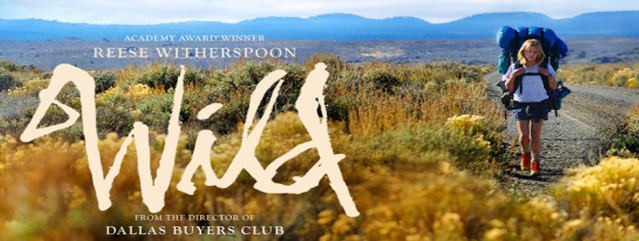
*Years after eighty-six-year-old Russell Weller ran me down at the Santa Monica Farmers’ market, I possessed enough emotional fortitude to unearth the new articles I had collected about the accident. It was then when I decided I needed to find a way to forgive him. I’ve been told that forgiveness is over-rated, that you don’t have to forgive to heal. While that might very well be true, my want to forgive others for any wrong committed is part of my constitution. So I had to at least make an attempt to forgive Russell Weller. Otherwise, I’d be infected with a case of chronic bitterness and cynicism, and worried I’d be contagious. Who wants to hang out with someone with a transmittable illness she has the capacity to heal?
To forgive, one must first assign blame. But, as in Russell Weller’s case, if there is no act of intentional harm, where do you place blame and, therefore, how do you forgive? To add an additional elusive layer, how do you forgive someone you’ve never met? Is it even possible to forgive someone you don’t know? I reached out to Russell Weller’s family years after the accident, but they refused my request to visit him. In 2010 he died.
The following year, I enrolled in an MFA program. During my third semester, still befuddled as to how to forgive Russell Weller, I wrote my critical thesis on the topic: The Face of Forgiveness. I examined how a particular writer, who had sustained life-threatening injuries after a car struck him, navigated the indeterminate nature of forgiveness on the page. Because each circumstance varies, forgiveness cannot be defined in absolute terms. **Since forgiveness is a process, I arrived at the conclusion that it can be charted in stages:
1) Understanding of the accident/incident
2) Transference of anger and other emotions
3) Self-pity
4) Awareness of others’ suffering
5) Avoidance
6) Surrender
These stages don’t necessarily occur sequentially. Like Elizabeth Kubler Ross’ stages of grief –denial/isolation, anger, bargaining, depression, acceptance – the stages of forgiveness may overlap, or one may become stuck in a particular stage. For me, I became stuck in one or two, and skipped another one or two altogether. It’s also worth noting that the stages of forgiveness may not occur in a defined timeframe.
Stage 1: Understanding of the accident/incident:
I dedicated months to reading news articles and investigative reports, parsing out the details of the accident: What Russell Weller was doing in the moments before he sped through the market, his medical history, his driving history, what bystanders witnessed at the scene of the crash. Somehow, I believed by reading those articles I would get to know Russell Weller and, therefore, be able to forgive him, or not. But written words weren’t enough – they seemed static on the page. Even though some articles included his apology – “I’m deeply sorry for any pain that everyone went through” – I could not hear his voice, hear his remorse, anger, or fear. And with all the contradicting statements about Russell Weller’s character and what people saw or didn’t see, I only became more confused. I felt like a pendulum – swaying dizzily between sadness and anger.
Stage 2: Transference of anger:
As I read articles about the role the local entities had to play in running the market, any anger I harbored for Russell Weller quickly transferred to city officials who were responsible for ensuring the safety of pedestrians. I wondered why they didn’t have sturdy barriers in place, rather than wooden sawhorses. But, similar to my confusion regarding how to feel about Russell Weller, my feelings and emotions swayed – from judgment to understanding, from contempt to submission.
Stages 3 and 5: Self-pity and Avoidance:
I did not become victim to self-pity – perhaps the perpetual warring dialogue in my head thrust self-pity aside. For the same reason, I skipped avoidance.
Stage 4: Awareness of others’ suffering:
As I continued my dogged search to find meaning within the chaos, I could not help but be lured into an awareness of others’ suffering. I imagined the physical and emotional pain the other injured pedestrians endured, and the rage and anguish that tore into the families of the deceased. I viewed Russell Weller as injured, too – emotionally, mentally, psychically. I imagined Russell Weller’s grief: plagued by nightmares, isolated behind drawn window shades, sallow from regret.
The judge who presided over Russell Weller’s trial said he “lacked remorse” Because he didn’t cry? Why is it that we have a tendency to forgive others only if they exhibit unequivocal remorse: falling to their knees, drooping, sobbing? But a display, or physical showing, of remorse is not necessarily what matters to those harmed. Of course, a sincere apology does not negate the harm done, but sincerely spoken words of remorse are what matter. The quality of the voice matters: is it harsh, tense, creaky?
In 2011, I Finally obtained and viewed a copy of the videotape of Russell Weller speaking with police officers soon after the accident. I slid the video into the CD player, inched close to the television screen, so close I felt as if he and I were together in the same room. Though he did not cry, his full-toned voice quivered as he said, “I’m in trouble with my heart and soul.” He voice quieted to a whisper, as if he were in church mourning over the dead: “God almighty, those poor, poor people.” That’s when I forgave Russell Weller. That’s when I surrendered – to Russell Weller’s remorse.
Is there anyone in your life you want to forgive? Have you forgiven someone who has caused you harm? How did you arrive at forgiveness?
*Originally posted at Speak Out! A blog about surviving traumatic brain injuries. Hosted by Donna O’Donnell Figurski.
**Stages of forgiveness conceived by Melissa Cronin
Read More






Recent Comments